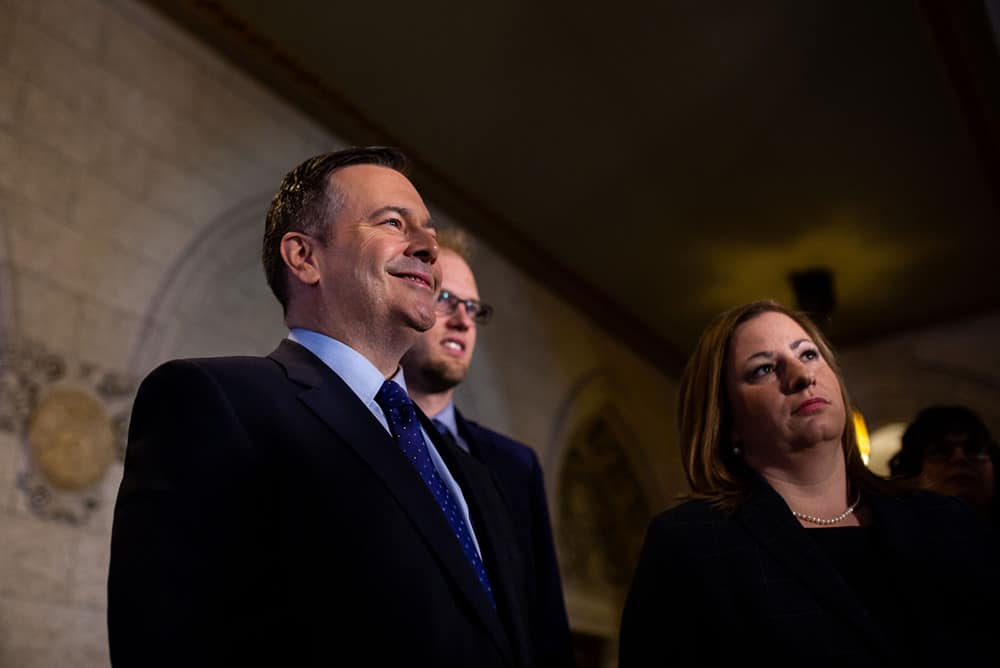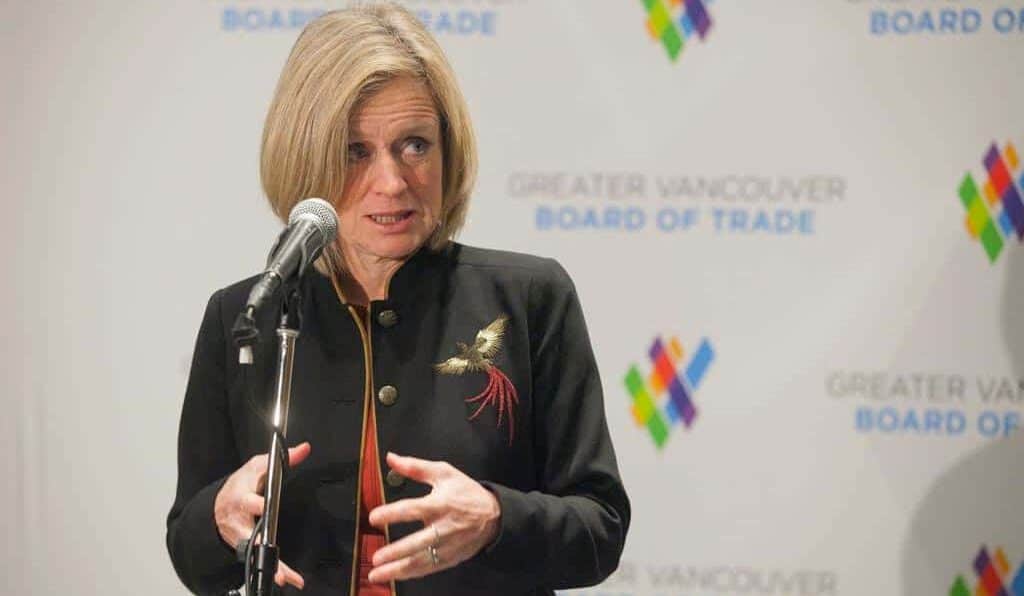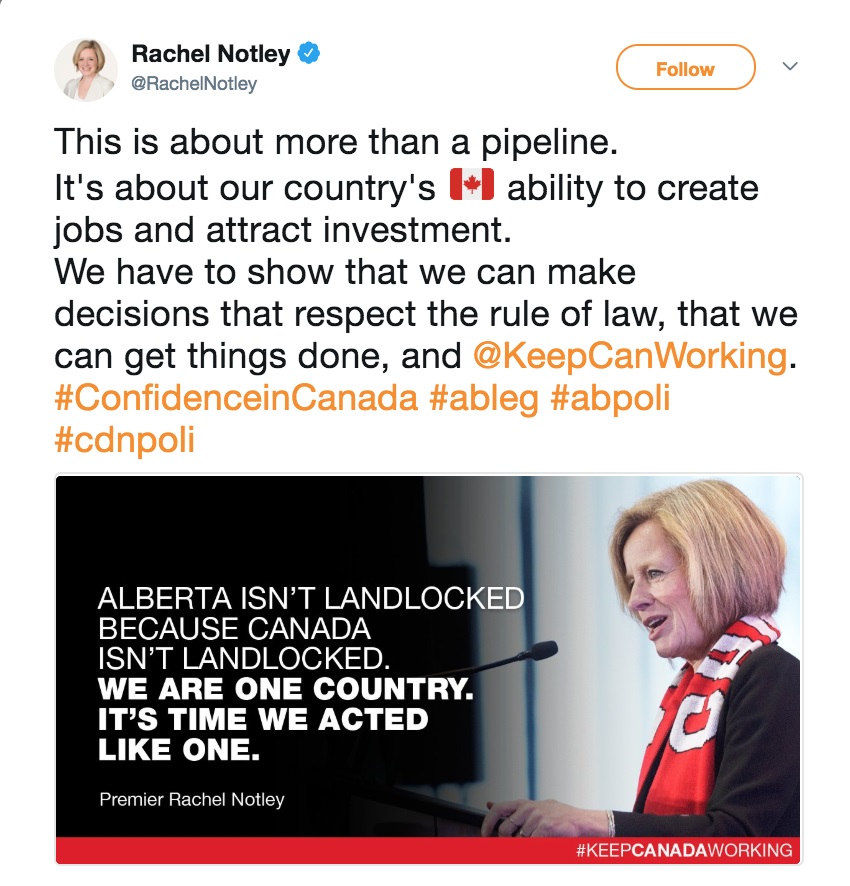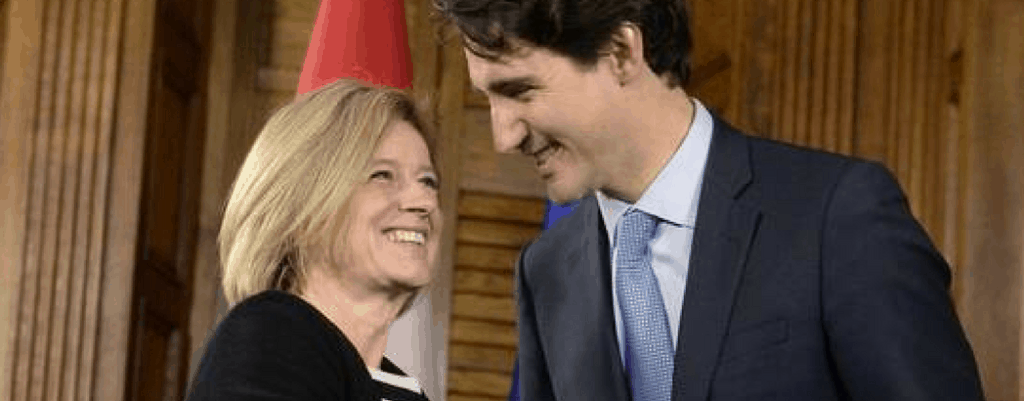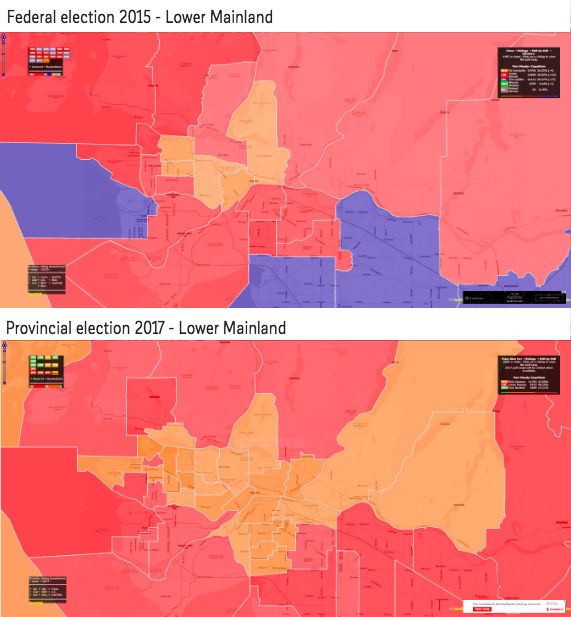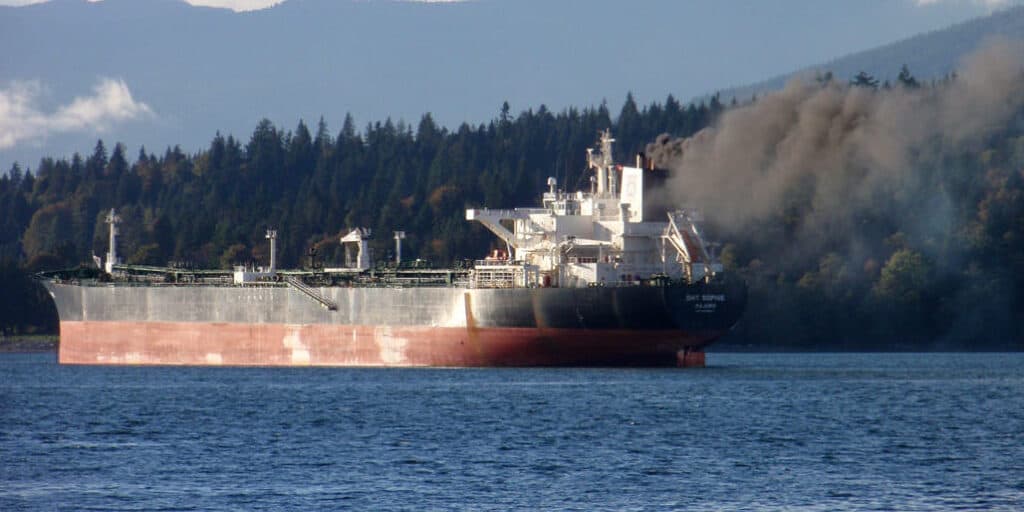Myths die hard: Santa Claus and Canada’s oil discount
Myths die hard. For example, a third of Canadian adults say they still believe in Santa Claus. Myths endure because they serve a purpose, good or bad. Our job, as responsible adults, is to figure out where a myth comes from and whether it still serves our best interests.
The myths of Santa Claus and the lies about exaggerated claims of a Canadian oil discount (detailed in my Discount Frenzy article) persist because they serve potent interests. Santa evokes powerful nostalgic forces as well as mystical yearnings for comfort and joy. Yet good, noble values are exploited by advertisers and retailers to encourage rampant materialism and overconsumption.
It’s harder to justify the three Big Lies surrounding the alleged Canadian oil discount — they serve the interests of Big Oil, arguably the most powerful industry on earth. They are fighting hard to maintain these lies as the attacks on my previous National Observer article illustrate.
Not surprisingly, supporters of the controversial Trans Mountain pipeline, like consultant Blair King and journalist Markham Hislop, took exception to my arguments. However, a close examination of the critics’ claims reinforces my conclusions.
Recap
Like the little boy in A Christmas Story who was wrapped too tight in winter clothes, Alberta Premier Rachel Notley and United Conservative Party Leader Jason Kenney in Alberta, along with Prime Minister Justin Trudeau and Finance Minister Bill Morneau in Ottawa, have clothed themselves with so many big lies about discounted Canadian oil that they can’t move. Their lies, like the little boy’s overstuffed winter jacket, no longer provide protection, but rather create unnecessary risk.
Big Lie #1: The So-Called Alberta Discount: There is no “discount” on Canadian oil. The price differential is related to its lower “quality” and higher transport and refining costs. When you are trying to sell Aunt Jemima syrup you don’t call the price gap between that and pure maple syrup a “discount.”
Big Lie #2: Absurd claims about $80-$100 million in daily losses: The Trump-like claim fabricated by multiplying the fictitious discount on oil by total oil production to come up with a outrageously inflated cost to the economy.
Big Lie #3: Trans Mountain will solve Alberta’s price problem: The erroneous claim that forcing the Trans Mountain pipeline through B.C. will open up new markets in Asia and fix Big Lies #1 and #2.
This veritable Hat Trick of #BigLies is impressive: They use discount frenzy (Big Lie #1 about the co-called oil discount) to allege an $80 million a day national economic crisis (Big Lie #2 about staggering economic losses) in order to support the Trans Mountain oil tanker-pipeline expansion proposal as The Solution to the fictitious price discount (Big Lie #3 about opening new Asian Markets).
Before we delve into a point-by-point response to the critics, it’s worth noting what my detractors don’t dispute. Neither King, nor Hislop, say one word to contest my conclusions about the preposterous claim that Canada suffers $80-$100 million in daily losses because of the oil discount (Big Lie #2). Apparently even some of Trans Mountain’s biggest boosters can’t stand behind this whopper, even though it serves as the foundation of the deceptive advertising campaign that Notley’s government is spending millions of dollars of taxpayer money on.
When you take a moment to stand back from all of this, you have to ask yourself, ‘who stands to benefit from you believing this story?’
Now to the specifics.
Low “quality” of Canadian oil
Blair King claims I’m wrong to label Canadian heavy oil as a “lower-quality product.”
The thing is, it wasn’t me that used that label, it was Canada’s National Energy Board (NEB), the federal agency that regulates pipelines.
The term “quality” is subjective. Technically, Canadian oil is a lower “grade.” Like maple syrup, oil comes in a variety of grades, with heavier oils and maple saps being darker, grittier, with thicker viscosity, and more mineral contaminants — thus getting lower grades. The various grades of maple syrup and oils are confusing to most people so, writing for a general audience, the use of lower “quality” is justified, and to King’s chagrin, Canada’s NEB agrees.
The NEB concedes that Canadian heavy oil is an inferior grade: “Heavy crudes are lower quality than light crudes because they yield a lower amount of high-value end-products, like gasoline and diesel.”
Now I may not agree with the NEB on many things, but the matter of grading crude is straightforward. Simply put, King is wrong about the lower quality of Canada’s heavy oil.
Price cut is driven by higher costs (and markets)
In my Discount Frenzy article, it seems I struck a nerve when I pointed out that not all oil is created equal. Just as not all the chocolate or syrups we get in our Christmas stockings are equally valuable, “[t]he simple fact is that not all oil is equally valuable. The price for a barrel of oil depends on many factors: the type of oil, the difficulty and cost of refining it, as well as the cost, distance and method needed to transport it.”
Hislop, after agreeing with me that the primary drivers of the so-called discount are the “lower grade and higher transportation costs that create an historic discount in the $10 to $15 range,” claims I failed to acknowledge the impacts, “when there is more oil than the existing pipeline system can handle.”
His point is simple supply-and-demand economics. When there is more product than the market can handle, prices drop.
The problem with Hislop’s claim is that it’s made up. Just like Will Ferrell’s character doesn’t become an elf just because he yearns to fit in, a pipeline bottleneck isn’t real just because Big Oil and their loyalists keep whining about it. Despite Alberta’s bellyaching, historically there have been very few times where a glut in oil production exceeds pipeline capacity for any significant length of time.
The fact is that until just a few months ago there was no pipeline bottleneck, there was more pipeline capacity than oil flowing. This means that, except for when pipelines are shut down (because they have leaked), or were operating at reduced capacity by government order (because of safety issues), a lack of pipeline capacity doesn’t explain the historic discount.
Hislop attacked me claiming my column wasn’t backed by “facts and data,” but it is he that ignores the data and relies on industry propaganda. Using hard data on actual shipments, a July 2016 Oil Change International analysis concluded, “there is more than 400 thousand barrels per day of spare capacity in the existing pipeline system. It is likely that the oil industry could face one minor constraint, lasting no longer than 18 months around 2018.”
/https%3A%2F%2Fwww.nationalobserver.com%2Fsites%2Fnationalobserver.com%2Ffiles%2Fstyles%2Fbody_img%2Fpublic%2Fimg%2F2019%2F01%2F11%2Fscreen_shot_2019-01-11_at_4.23.44_pm.png%3Fitok%3D35CCf9Zp)
The reality is, despite Hislop’s claims, Oil Change International’s 2016 analysis and predictions are coming true. There is a short term heavy oil glut, exacerbated by pipelines running at reduced capacity for safety reasons as well as bottlenecks created by heavy oil refineries shutting down for maintenance and new facilities.
Price ≠ Quality
King tries to obscure the “lower quality” oil fact by quoting other NEB statements that Canada’s heavy oil — in certain circumstances — is sold at a premium. King’s argument in essence is: if it sometimes garners a higher price, it can’t be lower quality.
Oil, like maple syrup, comes in different grades, and the price buyers are willing to pay depends on many factors: supply market, availability of inputs, world conditions, competition, weather, geopolitical issues, technical issues, demand market, cost or processing, cost of transport.
Just because in certain circumstances someone is willing to pay a premium price doesn’t make something a premium or higher quality product.
For example, if you had a bottle of larvae-infested pond water you could sell it at a premium to someone dying of thirst in the desert. However, that doesn’t make the dirty pond water clean, pure, disease-free or valuable to the average person.
/https%3A%2F%2Fwww.nationalobserver.com%2Fsites%2Fnationalobserver.com%2Ffiles%2Fstyles%2Fbody_img%2Fpublic%2Fimg%2F2019%2F01%2F11%2Fscreen_shot_2019-01-11_at_4.19.31_pm.png%3Fitok%3DxhNufVB6)
Back to the maple syrup analogy.
You have a choice if you live in Quebec and produce maple syrup.
You can boil (refine) the raw sap yourself into the tasty syrup people want to buy for their waffles, or you can sell the sap raw. No surprise, those that refine it themselves add value and get a higher price in the marketplace.
Refined, the maple syrup market is huge. Raw not so much. Every Safeway, Loblaws and Save-on-Foods in Canada has shelves full of refined syrup, with the price dependent on the quality one is willing to pay for. The darker the syrup is, the more delicate its flavor, and the longer it has usually been boiled.
If you want to sell it raw, however, you have to find someone that will buy it and your market shrinks drastically. Your potential customer base shrinks to companies that can boil (refine) the raw sap down to something useful to the average person. Refiners that have big boilers can get raw sap from anywhere, the price they will pay depends on the volume you can provide, the transportation costs, the quality (which determines refining costs), and whether your competition is willing to pay more for raw product.
If there are more boilers in a particular region, then transport costs are usually lower and competing boilers may occasionally have to compete for raw maple.
The same dynamic is at play with Canadian oil. Certain regions, like the U.S. Gulf Coast, have lots of refinery capacity and setups that can handle heavier, sulphur-tainted bitumen. Under the right circumstances, Gulf refiners will sometimes pay a premium because they have facilities to cook (refine) the heavy oil more efficiently. Unfortunately for Canada, most refineries, like most maple syrup consumers, like the refined lighter grades and aren’t willing to pay for the rawer product.
Is Canadian heavy oil more valuable?
While both Hislop and King admit that Canadian oil is more expensive to refine, they argue that it is also more valuable. King says, “heavy crude, refined in a heavy crude refinery, gives higher margins and less waste than light crude refined in a light crude refinery. The heavy crude costs more to refine but recoups more per barrel, which results in higher returns…[when] sent to high-conversion refineries in the Gulf Coast, the Midwest and in Asia where heavy crude produces higher margins and more product per barrel with less waste.” (Emphasis added)
Obviously, if you can get Canadian heavy oil to the right refinery, you can sometimes get a higher price. Refineries, if they are willing to invest in all the extra costs of building a more complex facility that can handle the heavy, more polluted bitumen, and the extra energy needed to process into a variety of products, can make more products and more money from the heavy crude.
King critiques me using a logical fallacy called a straw person argument. He gives the impression of refuting me, while actually refuting an argument that I never made. It’s the smoke and mirrors arguing technique in logic.
I have never disputed that once delivered to a region with a high concentration of heavy oil refineries that Canadian oil can collect higher prices.
But the problem for Alberta, Trudeau and oilsands cheerleaders is that there just aren’t that many heavy crude refineries and, despite a multiple decade-long call to build new capacity in Alberta, hardly anyone wants to invest the billions of dollars needed to build more.
Limited refining options and lots of heavy oil from around the world, plus higher transport costs, equals lower prices.
King goes on to critique me by citing the price difference between Mexican Mayan Crude and Canadian WCS, claiming that the “difference in price is due to Alberta WCS being land-locked, plain and simple.”
First, King ignores the fact that Canadian heavy oil has significantly more contaminants such as heavy metals than Mayan crude, making it less desirable and more expensive to refine.
Second, King makes a serious blunder and inadvertently substantiates my argument — he overlooks a crucial factor by omitting the key difference between Mayan and oilsands crude prices.
The price King cites for Mayan crude is the delivered price in the Gulf Coast. Canadian heavy oil price is lower because it still has to be shipped all the way south. In other words, the higher transport costs for Canadian oil explains the price differential, not some imaginary country discount.
No historic backlog of oil
Markham also critiques me using a straw person logical fallacy. His straw person is the oil glut.
The fact is that I’ve never disputed the claim that there is a currently “a backlog of oil waiting to get to market.”
But the historic discount is pure propaganda. As I documented above, oil supply seldom exceeded pipeline capacity until this fall. The current glut has nothing to do with the Canadian oil discount that Alberta has been whining about for years.
No doubt, the oilsands are presently in a pinch. But the challenges Alberta currently faces were predicted and largely of their own creation. As I concluded in Discount Frenzy, decades of bad choices by the oil patch and bad policies by successive governments have left them vulnerable to booms and busts. Unfortunately successive Alberta governments ignored the warnings, but now they want Canada to bail them out with further subsidies and climate unfriendly policies.
Despite his reverence for “facts and data” Hislop relies on questionable data to posit an ongoing glut and pipeline shortage. Markham relies on projections from Big Oil’s lobbyist, the Canadian Association of Petroleum Producers (CAPP). We all know corporate lobbyists are unlikely to provide unbiased data.
Hislop fails to mention that CAPP has a long history of inaccurately overestimating production projections. Oil Change International effectively critiques CAPP’s inflated pipeline projections, pointing out that they consistently overstate the alleged pipeline capacity bottleneck by undercounting domestic refining capacity, excluding rail capacity, and overestimating the timing and volume of new facilities.
Building Trans Mountain won’t solve Alberta’s woes
Like Ralphie in A Christmas Story, who believes his problems will all be solved if he just gets a BB gun for Christmas, my critics join Premier Notley and Prime Minister Trudeau in believing that building the Trans Mountain will solve Alberta’s problems. We fundamentally disagree over whether using massive amounts taxpayer money to force the pipeline through an unwilling province is a realistic solution to Big Oil’s troubles.
My proof that Trans Mountain isn’t the solution is the fact that despite all the talk of new Asian markets virtually no oil has been shipped to Asian through the existing TMX pipeline to Burnaby in years.
Why?
Because heavy oil sells at a lower price in Asia, not a premium. Like greedy children on Christmas morning, oilsands producers don’t want to accept less than they can get elsewhere.
Like Bad Santa, King tries to discredit me with another straw person fallacy, Knocking down an argument I never made by misrepresenting a tweet I sent him.
Here’s how King does it: he goes to great length (with charts and quotes) to show that all the current Trans Mountain output goes to refineries in B.C. and Puget Sound via pipeline with what little that remains shipped abroad on oil tankers going to California.
He posits this to counter me, but I have never disputed those facts. What I did dispute was his theory that any increased capacity from Trans Mountain would be shipped to Asia. I called that a “nice theory”
Here is part of the exchange.
Nice theory but the last few years of operations contradict your theory— Will Horter (@willhorter) December 28, 2018
Oil patch producers can choose where, and to whom, they sell their oil. Despite all the whining about (1) the big mean U.S refineries discounting Canadian oil, (2) the need for pipelines to tidewater to access new markets, and (3) the potential of huge new markets in Asia, the oil patch have CHOSEN not to sell virtually any of their bitumen to Asia. The reason: oilsands producers get lower prices in Asia because of limited refining capacity and much higher transport costs.
Unless making a wishlist to Santa can suddenly make the higher refining and transportation costs of heavy oil disappear (along with the upcoming IMO 2020 sulphur standards which prohibit sulphur laden oil from being used in marine shipping), selling Canadian oil to Asia won’t deliver a premium. The higher transport costs and lower prices won’t disappear magically because Trans Mountain is built. More likely, prices will drop as usually happens when you dump more product into a depressed market.
Other than his straw person fallacy, King provides no evidence that any additional capacity from Trans Mountain will end up in Asia. My guess: in the unlikely event that Trans Mountain ever gets built, Big Oil will do everything possible to send all the additional oil to existing west coast refineries where they get a higher price.
Although Hislop repeatedly extols his reliance on “facts and data,” his defence of the controversial Trans Mountain oil tanker-pipeline proposal rests almost entirely on CAPP’s puffed up production projections discussed above.
Hislop doesn’t dispute the fact that heavy oil attracts lower prices in Asia, so even if you accept his dubious capacity calculation as true (which it’s not), his assertions don’t support building the Trans Mountain to Burnaby, rather they bolster plans to build more pipelines to the Gulf Coast.
Canada faces a choice if we want to do our part in reducing climate pollution. We can choose the path of many other countries (exempt Trumpland) and invest in renewable energy like wind and solar and energy conservation, or Notley and Trudeau can subsidize Big Oil with money and lax policies to support their desire to grow oil production. Unless government sets climate-friendly caps, industry will continue to build out and Canadian oil production will rise — although not as fast, or as high, as Markham and CAPP predict — and new pipelines will be needed. However, with approved pipeline underway to existing heavy oil refineries, it makes no sense to spend enormous political capital and taxpayer money to try to force Trans Mountain through.
False myths are dangerous
It’s apropos, just after Christmas, to reflect on how myths, like Bruce Willis, Die Hard. Belief in Santa Claus persists because it provides comfort and joy for many people. But also because powerful advertisers promote Santa to double the number of presents that parents have to buy for their kids, thus encouraging materialism and excess spending.
Powerful forces also want us to believe in Big Lies about oil. Unfortunately, Premier Notley, Alberta Opposition Leader Jason Kenney and Prime Minister Trudeau are putting a dangerous, and misleading spin on myths about Canadian oil. Myths could be used to help us transition to a renewable future. Instead they are being used to rationalize the status quo and insulate and protect the most powerful among us.
Industries are built and die on these myths. Governments rise or fall on these myths. They affect the choices we as a society make for today, tomorrow and for our children’s future.
Unfortunately, there are no real world angels to counsel our political leaders off the suicidal course like they did for Jimmy Stewart’s George Bailey character in It’s a Wonderful Life.
If we are going to create a liveable world for our children, we’d better distill the myths that enhance life from lies that put us at risk from the chaos caused by living beyond natural limits.
Myths die hard: Santa Claus and Canada’s oil discount Read More »
